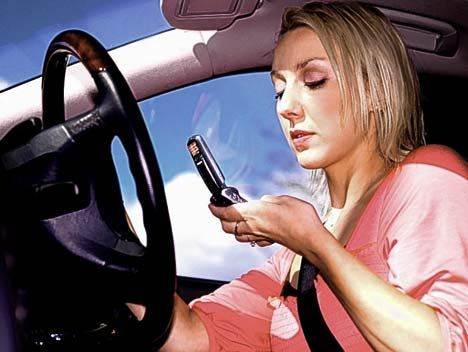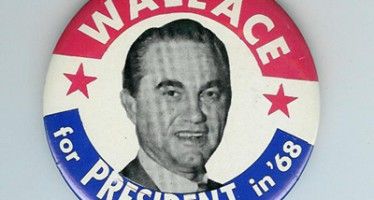New California in-car cellphone crackdown begins
 Amid lingering criticism and doubts about the feasibility of enforcement, Californians braced for new legislation taking effect in January that will ban almost all handling of cellphones behind the wheel.
Amid lingering criticism and doubts about the feasibility of enforcement, Californians braced for new legislation taking effect in January that will ban almost all handling of cellphones behind the wheel.
Beginning Sunday, law enforcement will be authorized to punish drivers using the devices in accordance with Assembly Bill 1785, authored by Assemblyman Bill Quirk, D-Hayward. “The whole idea is you don’t have the phone in your hand, period,” he told the Sacramento Bee.
Quirk’s bill, AB1785, plugged what safety officials called a major loophole in the state’s groundbreaking hands-free cellphone laws. Those laws ban talking and texting on handheld phones while driving. But any other handheld use of a phone, such as shooting videos or scanning Facebook, has been technically legal.
Growing risk
Statistics have shown that smartphones make life on the road more dangerous. “The California Department of Motor Vehicles statistics show that in 2015 cellphone distractions while driving caused 12 fatal crashes, 500 injuries and 700 instances of property damage,” Rare observed. Even more recent information has painted a picture of Californians drifting steadily into risky routines. “In a study conducted by the California Office of Traffic Safety in April 2016, at least 12.8 percent of California drivers were observed using a mobile device during the day, up from 9.2 percent in 2015 and eclipsing the previous high of 10.8 percent in 2013,” according to the Turlock Journal. “Due to the difficulty of observing mobile device use in a vehicle, these figures are considered minimums, with actual usage likely several points higher.”
“The OTS study also found that the observed usage rates appear to confirm previous studies, which show more drivers admit to using mobile devices “sometimes” or “regularly” and that fewer drivers believe that talking or texting on a cellphone is a major safety problem. Meanwhile, the percentage of those who say they have been hit or nearly hit by a driver using a cellphone remains steady at nearly 60 percent.”
Although a culture of keeping one eye on the phone and one eye on the road has spread, drivers have not embraced the trend simply for the sake of travel entertainment. Even with GPS, apps have not eliminated the need for basic interactive tasks like following directions, leaving Golden State drivers at risk of citation simply for using their phones as if they were maps. “If you are using your cellphone for directions, it must be placed on the dashboard or windshield of your car,” as the Kern Golden Empire warned.
Judgment calls
The fines promised to sting multiple industries reliant on drivers legally monitoring and interacting with their smartphones over the course of their daily drives. AB1785 did leave a carveout with affected businesses in mind, allowing motorists to “activate or deactivate a feature or function” of their devices “with the motion of a single swipe or tap of the driver’s finger.” But the narrow rule left many puzzled as to what possible constituency would find the carveout sufficient. “How does a cop distinguish between texting, which you can’t do, and activating or deactivating a feature or function, which you can?” asked the LA Weekly’s Dennis Romero. “Judges will love this law.” Ironically, the number of citations being dismissed in court under the old rules provided an argument in favor of passing AB1785.
Perhaps the gray area surrounding enforcement contributed to the relatively modest size of the fines imposed by the law. “Violators will be subject to a $20 fine for the first offense, with fines going up for additional offenses,” CBS San Francisco reported. But California Highway Patrol Officer Rodney Fitzhugh told ABC 10 “the cost of the ticket is up to the courts and local jurisdictions.”
Related Articles
Sunshine would prevent more Bells
AUGUST 11, 2010 By MICHAEL BARNHART Bell is one of the poorest cities in Los Angeles County, pays its top
April Fool’s Day campaign aims to clear voter confusion
Here’s a fact that’s no April Fool’s Day joke. A political party, which traces its history to the segregationist platform
L.A. County ground zero for invasive state surveillance
“Enemy of the State,” the 1998 movie about government using technology to track everyone, feels less like sci-fi all the




